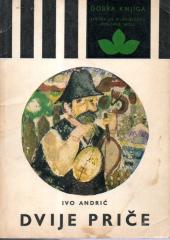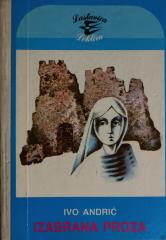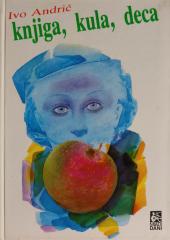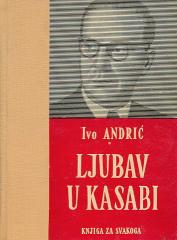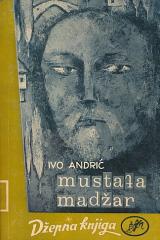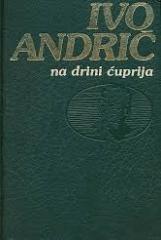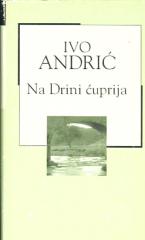Ivo Andrić
Ivo Andrić (9. listopada 1892. – 13. ožujka 1975.) bio je hrvatsko-bosansko-srpski književnik i jedini dobitnik Nobelove nagrade za književnost s prostora bivše Jugoslavije (1961). Rođen je u Travniku, a školovao se u Sarajevu, Zagrebu, Beču i Krakovu. Tijekom Prvog svjetskog rata bio je politički zatvorenik zbog simpatiziranja jugoslavenskog jedinstva. Nakon rata započinje diplomatsku karijeru, radeći u raznim europskim prijestolnicama.
Andrić je najpoznatiji po svojim romanima i pripovijetkama koje tematiziraju povijest i sudbinu Bosne i njezinih ljudi, često smještenih u osmanski i austrougarski kontekst. Njegova najpoznatija djela su "Na Drini ćuprija", "Travnička hronika" i "Gospođica", koja zajedno čine svojevrsnu trilogiju o bosanskoj povijesti i mentalitetu. "Na Drini ćuprija", epski roman o viševjekovnoj povijesti grada Višegrada i njegovog mosta, donio mu je Nobelovu nagradu.
Stil mu je mirno-refleksivan, povijesno-informiran i duboko humanistički, a teme su često obilježene promišljanjem zla, sudbine, trpljenja i povijesnih ciklusa.
Andrić je ostavio bogat opus eseja, pripovijedaka i romana, a njegovo djelo i dalje zauzima važno mjesto u književnosti jugoistočne Europe.
Naslovi u ponudi
Dvije priče: Priča o kmetu Simanu / Bife "Titanik"
.
Ispovijed i druge priče
Zbirka „Ispovijed i druge priče“ okuplja manje poznate, ali izuzetno vrijedne Andrićeve pripovijetke nastale uglavnom u razdoblju 1920–1940, od kojih su neke objavljene tek posmrtno.
Izabrana proza
Ljubav u kasabi
U pripovijetci "Ljubav u kasabi" (1926.) Andrić tka priču o dvoje mladih čija je ljubav bila poput rijeke što teče ispod leda – snažna, ali zarobljena, u kasabi gdje se snovi lome o kamen tradicije.
Mustafa Madžar i druge priče
Pripovjetka Mustafa Madžar opisuje život Mustafe Madžara, junaka iz Doboja koji se borio protiv Austrijanaca.
Na Drini ćuprija
Roman Ive Andrića objavljen 1945., remek-djelo je svjetske književnosti i dobitnik Nobelove nagrade 1961. Smješten u Višegradu, priča prati povijest mosta na Drini od 16. do 20. stoljeća, koji je sagradio Mehmed-paša Sokolović.
Na Drini ćuprija
Roman Ive Andrića objavljen 1945., remek-djelo je svjetske književnosti i dobitnik Nobelove nagrade 1961. Smješten u Višegradu, priča prati povijest mosta na Drini od 16. do 20. stoljeća, koji je sagradio Mehmed-paša Sokolović.
Priča o vezirovom slonu
U ovom Andrićevom remek-djelu otvarate vrata u svijet gdje se moć susreće s čudom, a strah prepliće s nadom! Ako volite duboke emocije, mistiku Orijenta i snagu naroda, Priča o vezirovom slonu vas čeka da je proživite!

